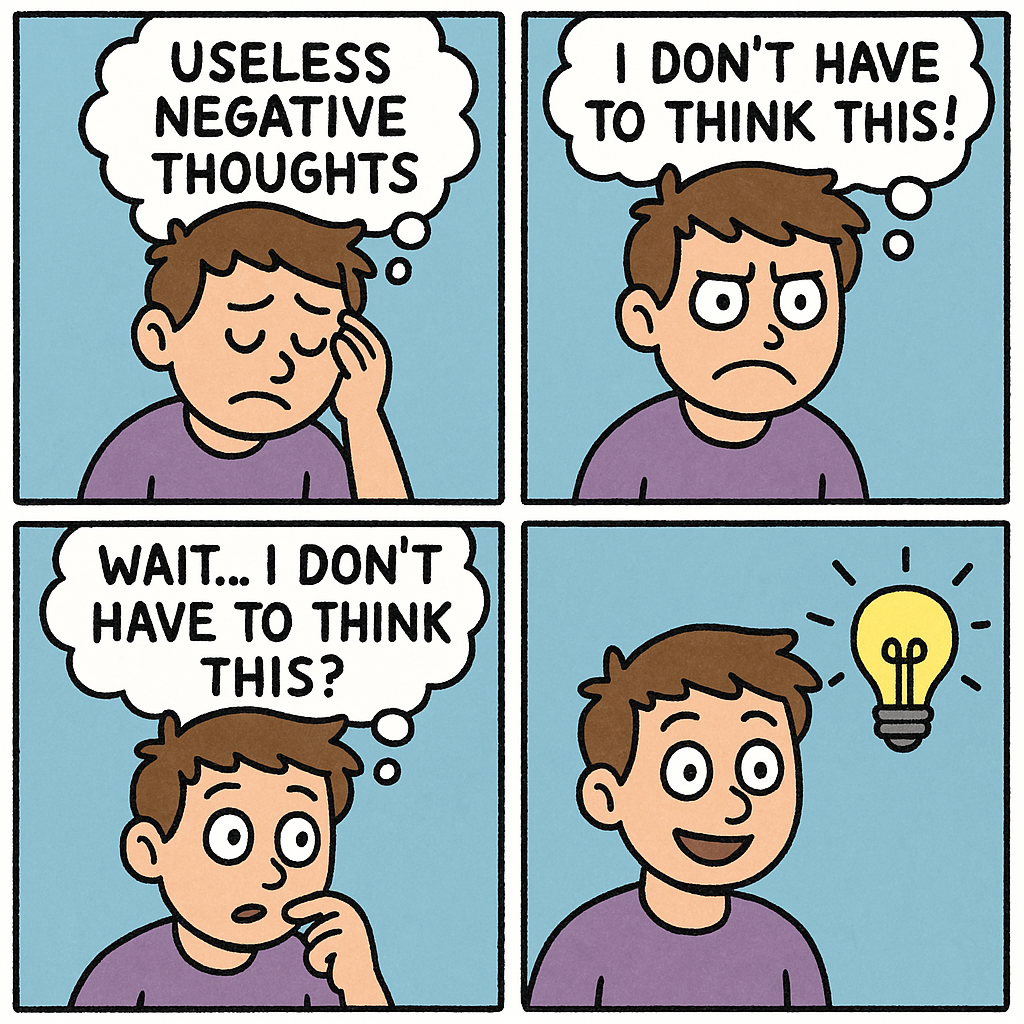Cognitive therapy of depression and anxiety is based on research that has shown how important negative thinking is in maintaining depression. Thoughts are automatic, negative, and well, thoughts. Automatic negative thoughts generate depression and anxiety, and then the depression and anxiety can cause more negative thoughts. This causes a vicious cycle.
Cognitive therapy is not the same thing as positive thinking. Most people understand that positive thinking is often not realistic. Cognitive therapy aims at promoting realistic thinking. Why is that? Wouldn’t realistic thinking be very unpleasant at times?
In the long run, realistic thinking allows us to deal with problems. It is also usually more positive than the thoughts stemming from depression and anxiety. Depressive thoughts and anxiety related thoughts are often extremely negative and usually not well supported by the evidence.
There are about 12 types of cognitive distortions which typically occur in depression. The list that I use is the following: Ignoring the positive, disqualifying the positive, overgeneralization, catastrophizing, should thoughts, all or nothing thinking, mind reading, fortune telling, reverse fortune telling, mislabeling, emotional reasoning, and personalization. Most of these are well known to patients and therapists, but I have added the one referred to as “Reverse fortune telling.” Reverse fortune telling would state that “If only I had done X, then things would be better now.” “If only I had had children, I would be happier” or “If only I did not have children, I would be happier.” ” if only I had gone to college, I would be happier; or “If only I had not gone to college, I would be happy,” and so on. The fallacy of reverse fortune telling is that there is no way to rerun the experiment of history and find out how life would have turned out if we had acted differently. There may be a few situations where we could reasonably presuppose a different outcome, such as, “If I had only not sailed on the Titanic…” But most of the time there is no way of knowing how life would have turned out if we had done some one thing differently.
Patients receiving cognitive or cognitive behavioral therapy can be trained to recognize the different types of negative thinking and to combat them. They learn why the different types are truly illogical and irrational. Challenging these thoughts is likely but not guaranteed to lead to more positive thinking. Sometimes situations in life are negative, and sometimes they can be quite upsetting and distressing. But we have to realistically understand the nature of our problems in order to be able to solve them.
These same issues apply to anger. High degrees of anger can cause thought distortions, and thought distortions can cause anger. Out of control anger does not cause quite as much distress as depression and anxiety. But it causes just as many problems in their lives.

Click here to proceed to Game One. which reviews these concepts.